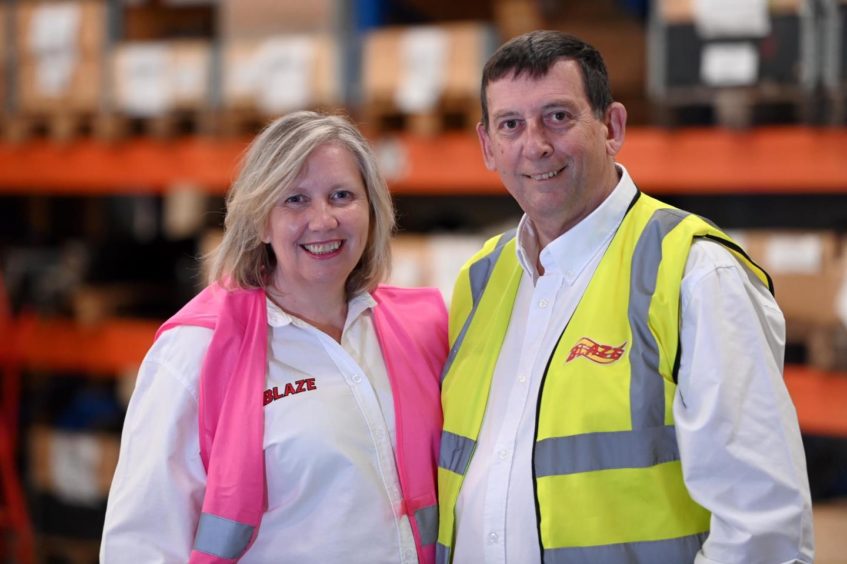
The SMEs of the energy sector – “Subject Matter Experts”, as Blaze Manufacturing refers to them – will have a key role to play in the transition to low carbon fuels and other industries.
Commercial Director Ann Johnson said: “The SME’s who have transitioned already into the greener markets are the ones who will be able to help the operators through that.
“It is a different world from that of Oil & Gas and, whilst everybody has got to be compliant and safe, we must avoid over-engineering and keep the solutions lean.”
Since the 2014 oil and gas downturn, the North Sea has managed to bring costs down thanks to operating efficiencies. But, with ever-aging assets, the impact of not servicing is prolific and Blaze is now coming across equipment which has not been serviced and consequently not functioning correctly.
Blaze is helping companies plan for what has to be done to operate safely and to assist operators safely through into decommissioning. This requires a company like Blaze which has the expertise in offshore systems to remain compliant and safe whilst keeping costs down.
The firm, a specialist in fire prevention and detection systems, sees a role in helping traditional oil firms in their shift towards other sectors including offshore renewables, a market it has operated in for six years, with five projects completed and more on the way.
That means ensuring the tool suits the job at hand, rather than over-engineering something without good cause.
Managing director Howard Johnson said: “We are in danger of the industry taking all the over-engineering, bad practices that we’ve seen over the years from within Oil & Gas and we’ll end up having to go through ‘cost reduction for the new era’ for renewable energy further down the line”.
“Minimum engineering is not cutting corners; it’s about addressing what needs to be done and not just creating deliverables for the sake of it.”
Oil and gas remains an important aspect of Blaze’s business, accounting for around 20% of revenues, with specific products for that sector such as its Flameshield and FlexFlo systems which are able to withstand jet fires and explosion and can be fitted without shutting down production. Those systems, in conjunction with its deluge management strategies, means Blaze is able to reduce the impact of testing water based systems by utilising dry testing.
But many of the growth opportunities for Blaze lie within other sectors such as offshore wind, nuclear and hydrogen, where there is a raft of competency and compliance initiatives where Blaze has also had to adapt its workforce for.
“I think any company has to be active in a blend of markets if they are to succeed”, Howard said.
“Aberdeen is reinventing itself within the energy transition and all aspects of the supply chain are part of that journey, whilst Oil & Gas will be with us for many years to come, the footprint the industry leaves behind has been massively optimised over recent years.”
Recommended for you
